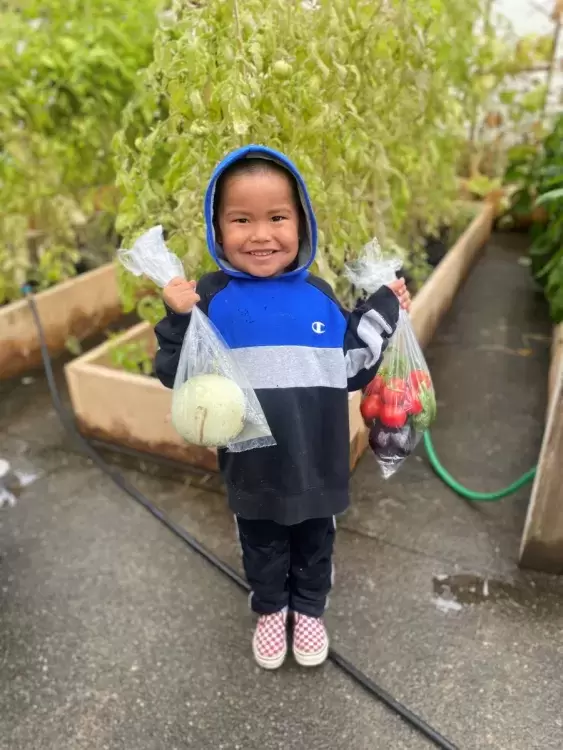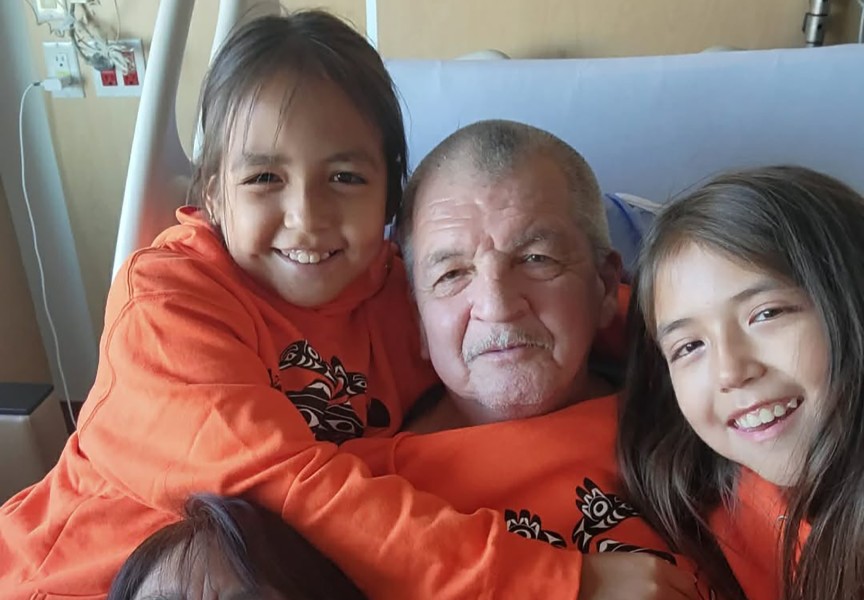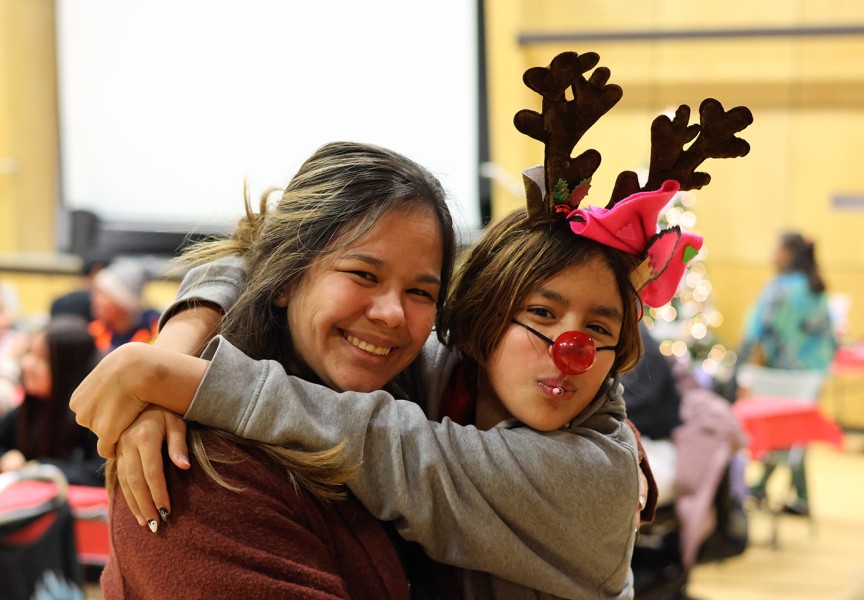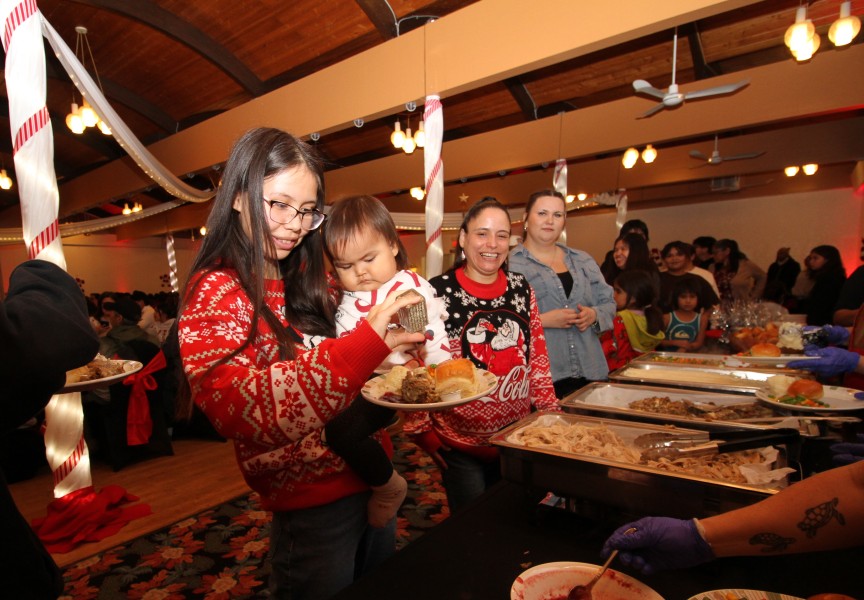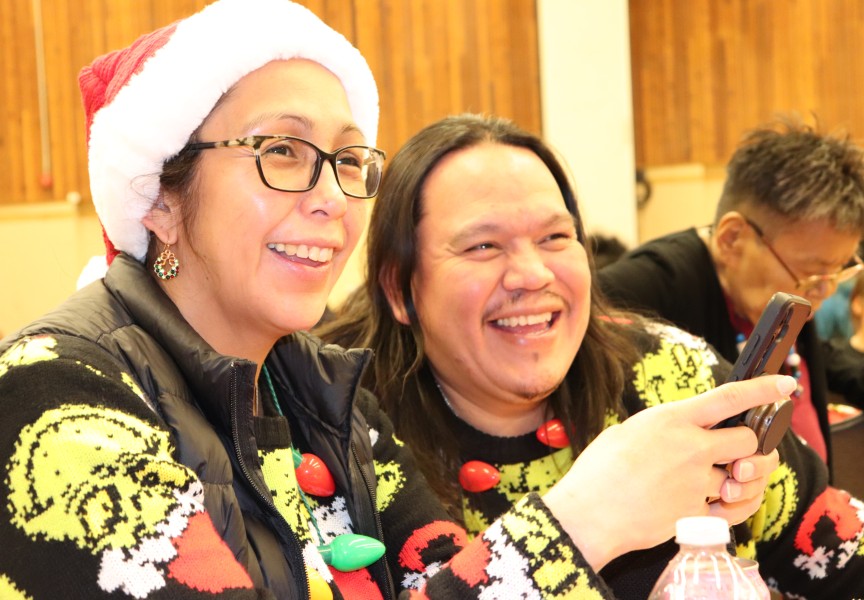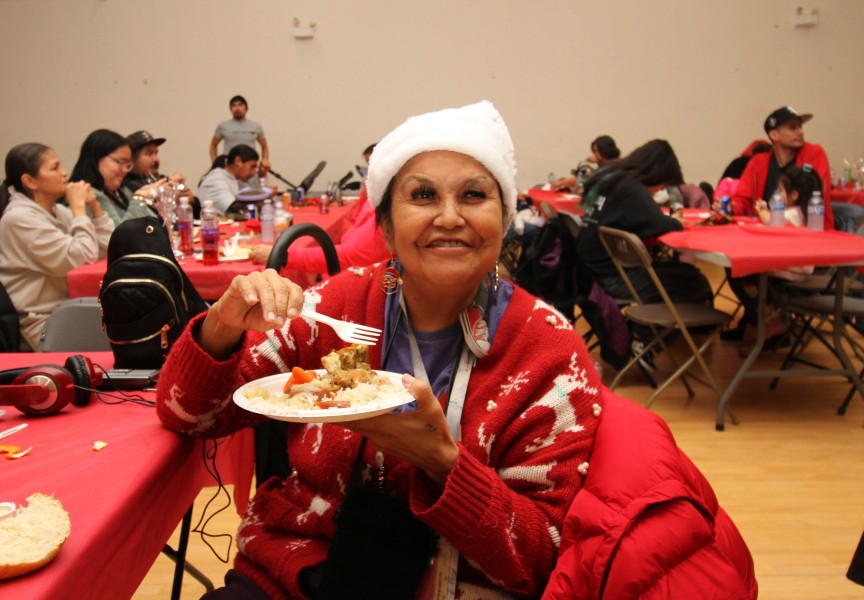With the rise of retail food costs many remote coastal communities are turning to community gardens as a source for food security.
Kristi Walker, a wellness practitioner and master gardener, has always been an advocate for community gardens in remote communities. Walker is the lead gardener for Mowachaht/Muchalaht First Nation, which provides fresh produce to the it’s members and Nuu-chah-nulth people living in Gold River.
Walker and a team that includes three Mowachaht/Muchalaht youth tend to the garden, which is filled with vegetables and fruit each season. This year they will be entering their fourth gardening season.
The harvested produce is then either stored and preserved, or picked up by community members at their onsite pantry, which includes a freezer and shelves for preserved goods.
Rose Jack, a community health and family services manager for Mowachaht/Muchalaht, said there is a demand in Tsaxana for fresh produce from the garden.
“The produce like lettuce and kale, tomatoes, and, you know, the cucumbers, the fresh…stuff is really popular whenever the grandchildren harvest,” said Jack.
The youth, along with Walker, will post their harvest to Facebook for pick up.
One of the biggest challenges for the garden is getting people involved.
“I really want to start mentoring others so that they can have that ownership over their own food sustainability,” said Walker.
“It's a big job to grow a lot of food for a lot of people,” she added. “It's so necessary.”
“If our grocery stores in Campbell River…begin to empty, the thing that is scary is, any of our remote communities are going to be the last to get into town,” said Walker. “By the time they get in the shelves are going to be bare.”
According to The Future of B.C. Food System Report (2020), British Columbia outsources roughly 2 billion dollars worth of produce from California annually, a state that experiences hurricanes and droughts.
One of the concerns with food security is climate change. Canada’s Food Price Report for 2023 lists climate change as one of the “very significant” and “very likely” contributor to an increased price in food.
“Food is expensive, it's hard to access for people, but yet, there's so much available here that could benefit people,” said Erika Goldt, lead for Clayoquot Biosphere’s Eat West Coast food security initiative.
Goldt explains that food security means communities have access to “good quality” and “affordable food”, though the definition continues to evolve.
“When we talk about food sovereignty, it means our food isn't just a commodity, it's a community good,” said Goldt. “[It’s] something that matters to the health of our communities…and that we should have a say in…We should have a say in where our food comes from and how our local resources are used.”
Goldt explains that receiving financial support for community gardens has been a challenge because many funding models may not match with the needs of smaller projects.
“Looking at different models that can allow…community gardens to be financially sustainable is a little bit new,” said Goldt.
Trina Mattson has been the school garden facilitator in Ahousaht and is owner of the OCN garden centre in Tofino. She said that involving schools in community gardens gives kids the opportunity to develop skills that they otherwise would not have learned.
Mattson said that teaching gardening to kids builds confidence.
“It is about food security, it is also about self reliance,” she said.
Mattson also explains that not only do kids learn skills, they have an opportunity to build new friendships with other students.
“What you're hoping for is to produce food to feed people. That’s a huge goal,” said Goldt. “There's just the value itself in bringing people together; that connects us to each other and where food comes from - and that sense of belonging and sharing.”

